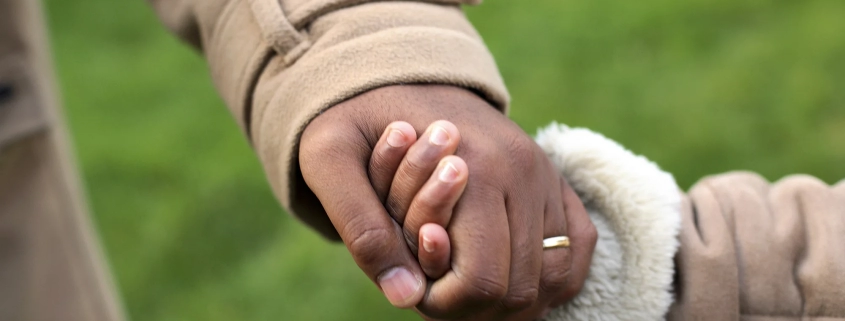I know that many upon seeing this title will cringe. Faith and politics should not mix! I think people believe this less for ideological reasons these days than for practical reasons. It will bring conflict and then division; it will hurt our church. For quite some time that has been the practice. At the same time there is a clear biblical mandate to engage the world and that cannot be done without becoming political. As I believe we all know, the federal tax code does not allow us to endorse candidates or party platforms. That doesn’t mean we can’t be political. Taking on an issue is political while not being partisan.
In Adult Sunday School class we have been reading Jim Wallis’ book, On God’s Side. It is unabashedly political. Wallis grew up in an evangelical home where he says he never heard about the Sermon on the Mount. He experienced a conversion and started an alternative community in the poorest section of Washington D.C. – Sojourners. Subsequently he has edited Sojourners Magazine. His goal is to try to understand all sides and direct them to seeing God’s side and to be reconciled. For example, he lifts up both personal responsibility and responsibility for the community, suggesting that God would value both. Finally, he believes that aim is to work for the common good. So, how’s that been workin’ in our current election cycle?
I think we are all tired of this election, for many and diverse reasons. A man from Quebec came to Kenneth’s French class and explained the Canadian political system to the class. Kenneth noted that campaigns usually last one month. Can we imagine how much less stressful our lives would be if we did the same? The pundits wouldn’t like it though. I want to make a few observations about what is happening in American politics today that make it so frustrating.
I have never heard such name calling in politics in my life! The vitriol is unprecedented and alarming. What is exhibits is, at least in part, the radical nature of the division in America. There is no dialogue – no conversation. The tone of the debates is toxic. It’s about making the opponent look bad. In this election the division has become so severe that it is disturbing families, causing people to avoid people. I have one friend who posted on Facebook a request that if they supported a certain politician to please unfriend her. Wallis wants us to seek the common good, how do we do that when there isn’t an inch of common ground. And why is this? How can we as Christians/the Church create an space where we can have a conversation? Even the churches are reflecting this divide; people don’t want to go to church where there are people who would vote for him/her. If we are the church of Open Hearts and Minds, how do we live that out in the current political climate? Wallis would say we need to ask about what God’s Side looks like – can we do that?
The division is exacerbated by social media. Any new technology offers an equal opportunity for good and evil; Facebook allows us to be connected with people, but it also nefariously encourages us to connect with people we agree with. I saw on YouTube recently parallel red and blue posts on Facebook about the same events. It’s like they were talking about different events they were so skewed. Groups of people live in alternate virtual worlds. Twitter also corrals certain people – followers. And by limiting tweets to 140 characters it dumbs down discourse; it becomes verbal abuse. I try not to be political on Facebook – I did once in a moment of anger and I regret it. In the Church we have to encourage better communication – ideally face to face communication.
Another division that has welled up in this election has to do with gender. The election of our first woman president coupled with the revelation of Donald Trump’s treatment of women has exposed our shortcomings has opened up a can of worms. We may think we are doing well regarding gender I this country but what is happening in this election says otherwise. I recently watched a video of Chelsea Clinton and there were tweets running along the margins. The hate speech was so “nasty” that I had to turn it off. I believe that Hillary Clinton has been criticized and attacked for years because she acts like a man and many in our country are still not comfortable with that. In that context she had little choice but to be calculating, secretive, and very determined. The kind of hate speech that was tweeted while Chelsea was speaking was irrational and deep down, I think, misogynistic. There was also published on the internet maps of the electoral vote if only men, women, white people and non-white people voted, respectively. If it was only men Trump would win, if it was only white men he would win in a landslide. If only women voted Clinton would win by a substantial number; if only people of color voted Clinton would win every single state. Also, in all the projections the state of Washington was blue. This illustrates the severe divides that exist in America both ethnically and in terms of gender. We need to wonder about how we can heal these divisions. What role can the church play? What can our Church do?
To state the obvious, money still rules in American politics. Until Citizens United is overturned there will be no fairness in our election process. It isn’t only money it is the economy as well. As I said in a recent sermon, we had three debates and there wasn’t a single question about climate change. Our vision is myopic. We are afraid of many things but forgotten about the one thing; to see things from God’s perspective. It seems to me that it is our duty to raise the larger questions. We don’t question economic growth; we should be talking about how we can slow things down so as to preserve life for future generations and not about expanding energy production. How can we, if we want to be on God’s side, continue what we’ve been doing?
I may be wrong – in fact I’m sure I am sometimes. But I assure you that I attempt to connect my politics to my faith. In this way I think faith and politics belong together. I think we need to be talking with each other about how issues of gender, the use of social media and other technology, how money is involved in our political process, and the use of energy all have to do with who we are as Christians. These are the questions we need to be asking each other. As we move ahead my vision of the church is that we will continually be able to do so. It is a challenge both internally and externally; internally because it is very difficult to align some of our political views with our faith, and externally because we may find ourselves in conflict. There is the promise of transformation if we work at it. And if we don’t try then I’m afraid we are doomed to more name calling, intimidation and meanness. See you in Church.
P.Jim



